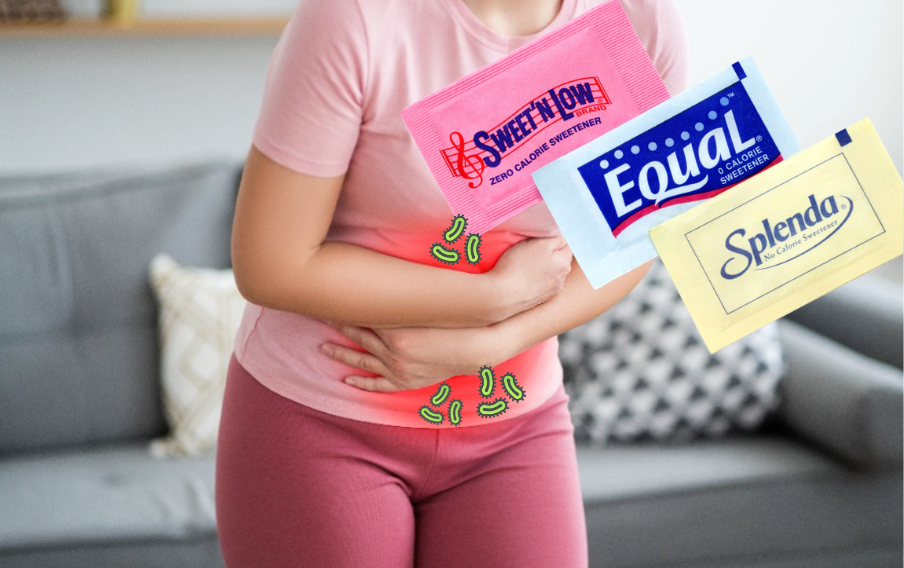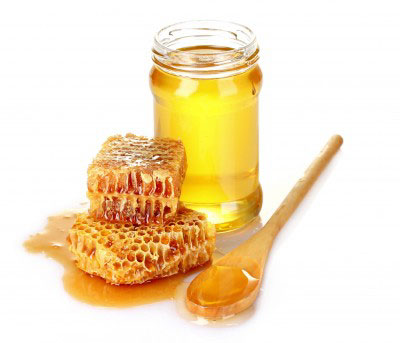
4 Artificial Sweeteners Linked to 'Nightmare Bacteria'
Synthetic sweeteners have been linked to a wide range of health problems, with over 80 documented on the GreenMedInfo database, alone. The various mechanisms of their toxicity, however, have not yet been fully elucidated. A new study raises a disturbing possibility that these widely consumed chemicals are driving otherwise 'good bacteria' into developing potentially lethal antibiotic resistance through a gut-mediated process.
Posted on: Saturday, January 7th 2023 at 9:30 am
Written by: Sayer Ji, Founder
A concerning new study published in the journal Gut Microbes titled, "Non-caloric artificial sweeteners modulate conjugative transfer of multi-drug resistance plasmid in the gut microbiota," raises a concerning possibility: commonly used artificial sweeteners (saccharin, sucralose, aspartame, and acesulfame potassium) are contributing to the spread of antibiotic resistance associated genes within gut bacteria linked with the rise of deadly infections.
The groundbreaking study looked at the role that non-caloric artificial sweeteners have on the gut microbiome, using a mouse fecal bacteria model. They noted that table sugar alternatives pass through the intestinal tract without significant metabolization, and therefore frequently encounter the gut microbiome, which contains a pool of antibiotic resistance genes (ARGs). ARGs are a well-recognized factor contributing to the worldwide problem of so-called 'nightmare bacteria,' against which the conventional pharmacopeia of antibiotics have been proven virtually useless, and natural substances now provide significant promise.
ARGs are designed by nature to help the gut microbiome survive toxic insults from the hundreds of thousands of novel new compounds the chemical and pharmaceutical industries have unleashed upon the biosphere and humanity as a whole. The problem, however, is these same mechanisms within the gut bacteria that enable them to adapt and survive these increasingly toxic exposures, also confers resistance to conventional antibiotics. And the number of ARGs within the total set of bacteria within the human microbiome are immnese. For instance, another recent study published in Nature and titled, "Assessment of global health risk of antibiotic resistance genes," found 2,561 ARGs that collectively conferred resistance to 24 classes of antibiotics in the human gut microbiome. The study concluded: "Our results demonstrate that 23.78% of the ARGs pose a health risk, especially those which confer multidrug resistance."1
The Gut Microbes study found that all four artificial sweeteners tested increase reactive oxygen species (ROS) production (i.e. free radical damage) and promoted something known as "plasmid-mediated conjugative transfer to the gut microbiome," a form of horizontal gene transfer that accelerates bacterial adaptation to xenobiotic chemicals like antibiotics and synthetic sweeteners by exchanging key genes.
Specifically, the study found that the opportunistic ('pathogenic') bacteria Klebsiella pneumoniae, commonly found in deadly antibiotic-resistant infections, became more prone to "plasmid permissiveness" when exposed to the synthetic sweeteners, indicative of the upregulation of antibiotic resistance genes and conferring greater pathogenicity. The researchers noted a "dramatic" increase in gene transfer, with up to 13.1 fold increase in transfer ratio; an increase larger than the fold changes (2.1~8.7) produced by the commonly used antibiotics such as ampicillin, cefotaxime and ciprofloxacin. In other words, the synthetic sweeteners may be worse than antibiotics in driving antibiotic resistant infections.
Moreover, the researchers found that the synthetic sweeteners promoted conjugative plasmid transfers from exogenous E. coli to both phylogenetically close bacteria (e.g. Escherichia) and phylogenetically distant bacteria including Acinetobacter and Staphylococcus, leading them to conclude: "This indicates that these sweeteners could help donor-recipient couple overcome phylogenetic barriers to exchange ARGs." In other words, the synthetic sweeteners are contributing to driving unnatural adaptive pressure on strains of bacteria which are normally prevented from exchanging antibiotic-resistance genes.
The researchers concluded that,
"Considering the soaring consumption of these sweeteners and the abundance of mobile ARGs in the human gut, our results highlight the necessity of performing a thorough risk assessment of antibiotic resistance associated with the usage of artificial sweeteners as food additives."
Only the Tip of the Toxic Iceberg
It is a little known fact that artificial sweeteners like aspartame and Splenda are highly toxic chemicals which required massive industry funding and propaganda, as well as the abject failure of governmental regulatory oversight by the FDA, in order to be approved and promoted to billions of consumers as safe alternatives to healthy and natural sweeteners, such as xylitol, stevia, honey and maple syrup.
For more background on the topic of their extreme toxicity read: Aspartame: Putting the DIE Into Dieting Since 1981, The Bitter Truth About Splenda, and Study: Saccharin And Sugar May Be More Addictive Than Cocaine.
Truth be told, artificial sweeteners carry such a wide range of health problems that it is better to leave them alone, as a whole. The basic principle worth applying is that if it was made in a plant (i.e. chemical factory) and not by a plant, it's probably harmful. Or, another rule of thumb is that if it requires a degree in chemistry to pronounce -- Splenda's chemical name is 1,6-dichloro-1,6-dideoxy-BETA-D-fructofuranosyl-4-chloro-4-deoxy-alpha-D-galactopyranoside - you should probably leave it alone.
Also, consider that if you divorce caloric content from the taste of sweetness the body will experience profound confusion resulting in weight-promoting and appetite-enhancing effects. And so, there is really no point in trying to "cheat" Nature, and your own physiology, because it simply won't work.
A Ton of Natural Alternatives that have "Side Benefits" not Side Effects
If you are looking for natural sweeteners that won't do harm, you can start by reading my article 4 Sugar Alternatives That Won't Poison You. You'll find compelling research that honey, molasses, xyitol and stevia are compelling alternatives to synthetic sweeteners with the caveat that stevia by being non-caloric may sometimes be guilty of the afforementioned problem with artificial ones, namely, removing the caloric content from the experience of sweetness may confuse the body and have some neuroendocrine down sides. That said, when stevia is added to baked items, cereal, a smoothie, or a drink that might already have some calories and nutrition instead of sugar, or another caloric rich sweetener, it can act as a nice balancing agent which can provide the proper aesthetic values without raising the glycemic index of the food you are preparing. Everything has a place, in moderation.
When you navigate the Greenmedinfo.com database you'll find a surprising volume of studies on the health benefits of natural sweeteners like honey, for instance, indicating that his has a potential therapeutic role in over 180 different health conditions. Clearly, when given the incredible potential benefits of eating natural sweeteners versus synthetic ones, there should be no doubt remaining to avoid the chemicals and their well-known harms.
© [1/7/2023] GreenMedInfo LLC. This work is reproduced and distributed with the permission of GreenMedInfo LLC. Want to learn more from GreenMedInfo? Sign up for the newsletter here //www.greenmedinfo.com/greenmed/newsletter.
------------------------------------------------------------------------------------------------
Expand your knowledge on the topic of diabetes with our expansive list of diabetes-related continuing education courses:
- Diabetes: An Introduction
- Diabetes Medications
- Diabetes Medications: Part 2
- Diabetes: Metabolic Syndrome and Prediabetes
- Diabetes Overview: Type 1, Type 2, and Gestational Diabetes
- Diabetes Related Conditions and Complications
- Diabetes Management and Insulin Pumps
- Diabetes Management and Insulin Pumps for School Nurses
Pedagogy's courses are available for purchase by the individual or facility. For individuals, register with us to create your username and password, click on the course title of interest and then click the Buy Now button. For a complete listing of all our online continuing education courses, including the largest selection of infusion continuing education courses offered online, click here!
For organizations that would like to purchase education for their entire staff, email sales@pedagogyeducation.com and let us know the course(s) of interest and how many staff members you need to provide education for, and we will be happy to send you a price quote.
.png.aspx)
